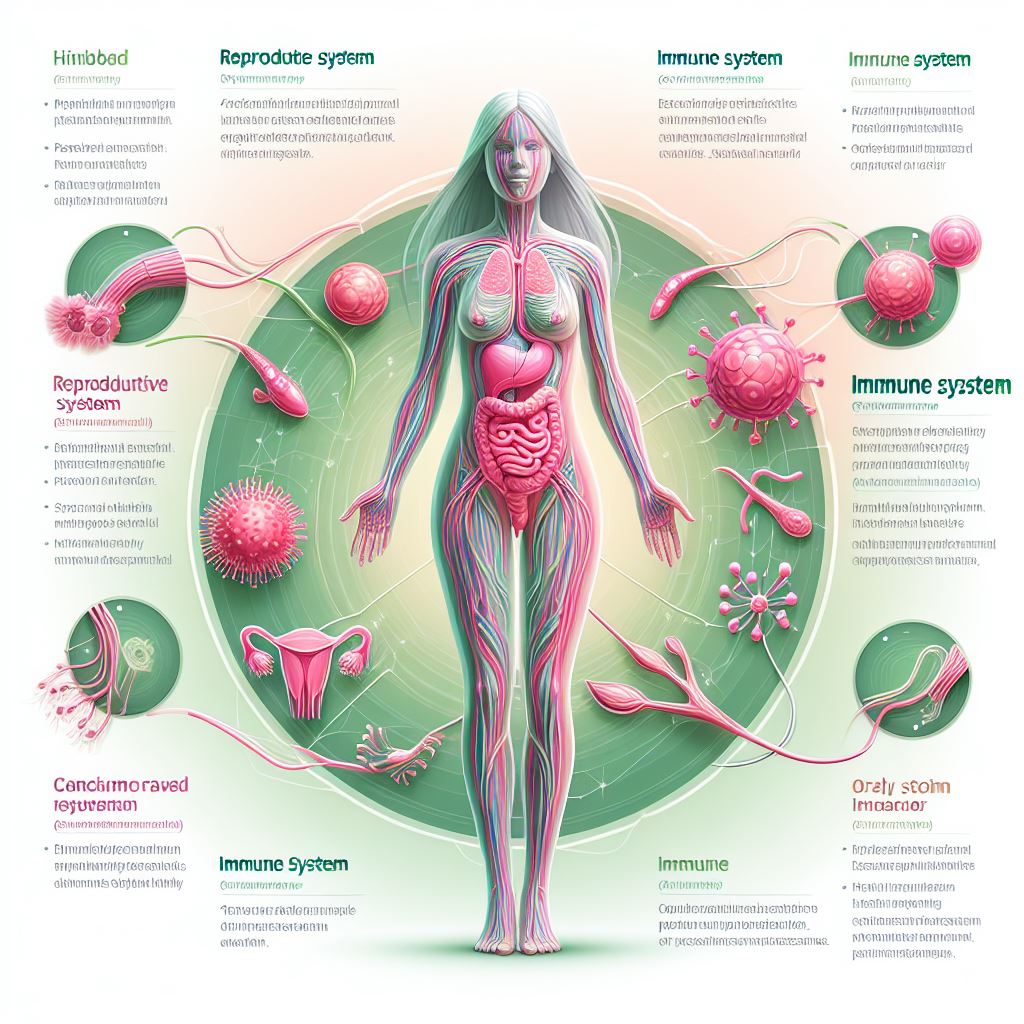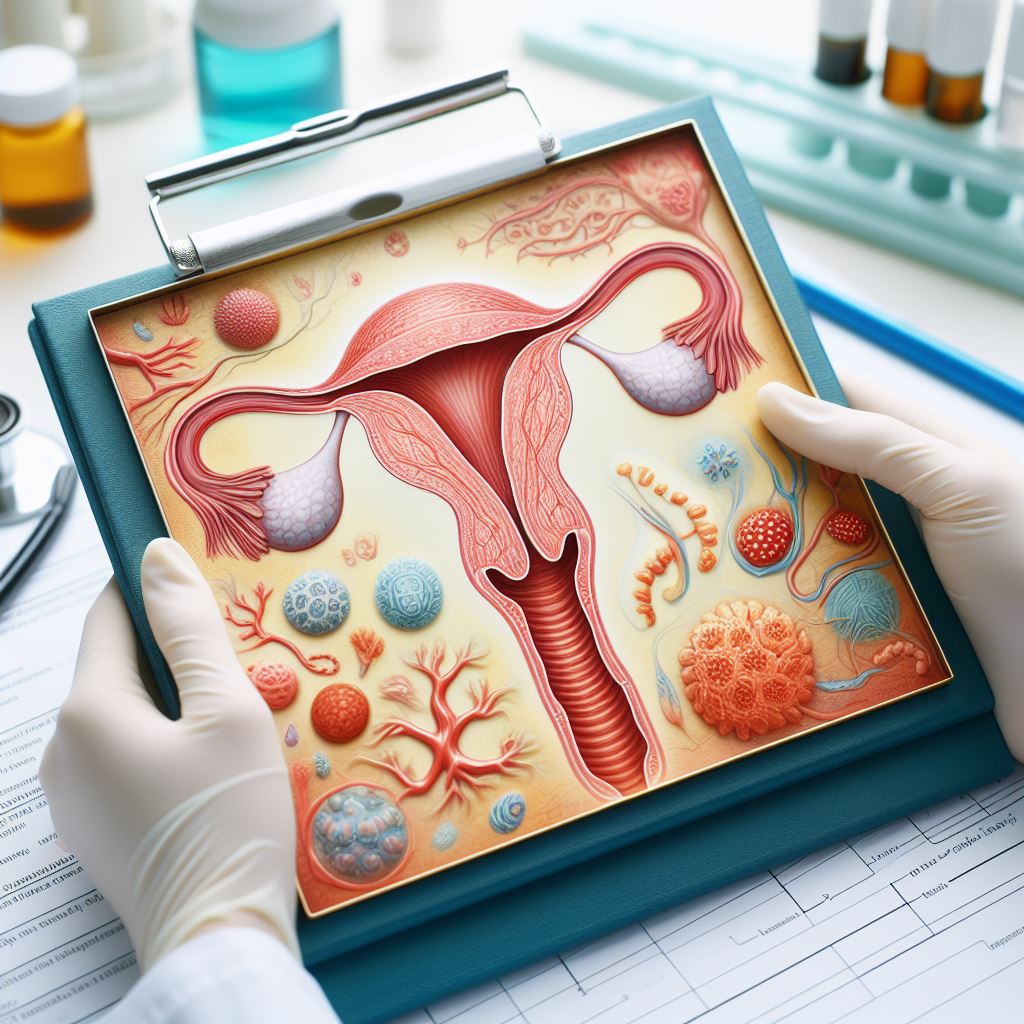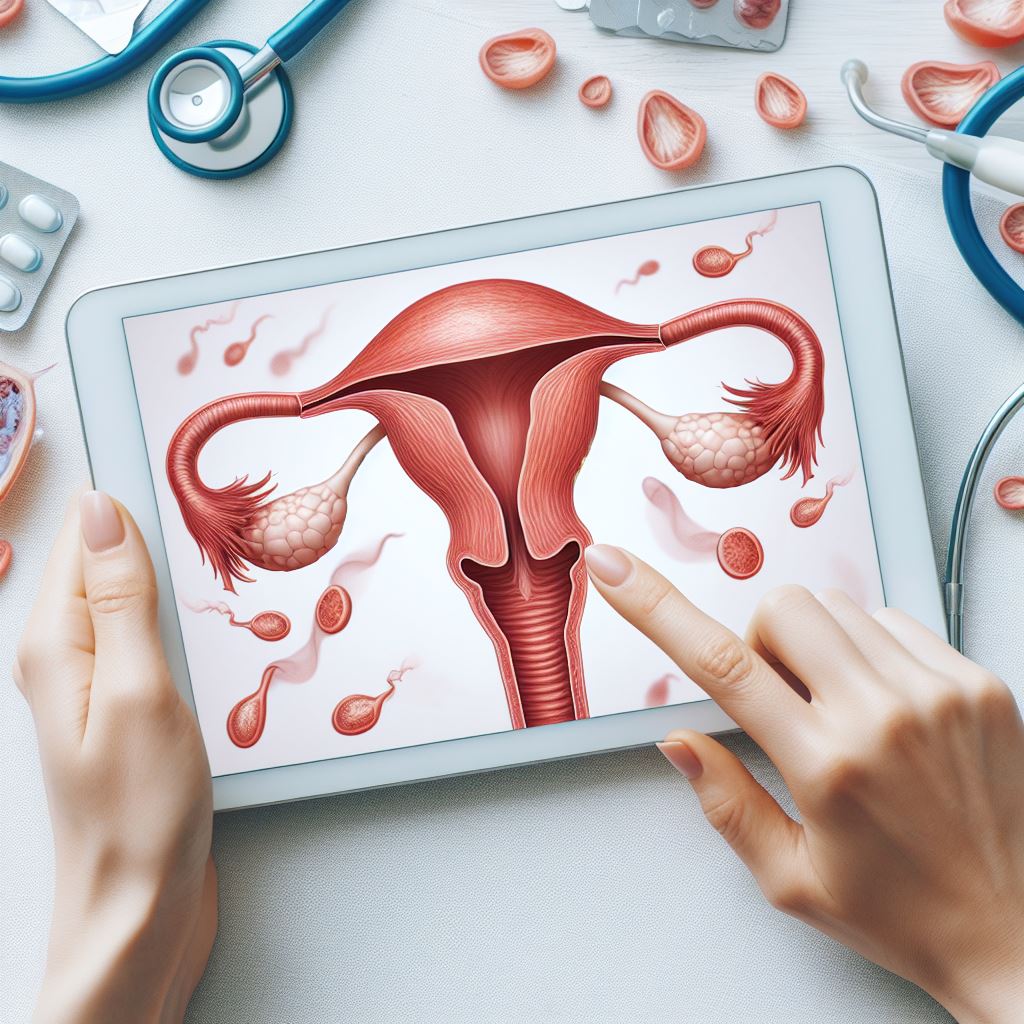Introduction
If you are a woman who is trying to conceive, you may wonder how your immune system can affect your chances of getting pregnant. You may have heard that some immune system disorders, such as infections and autoimmune diseases, can harm your fertility. But how true is that? And what can you do to improve your immune health and your reproductive health?
In this blog post, we will explore the effects of immune system disorders on female fertility, based on the latest scientific evidence. We will also give you some tips on how to prevent and treat these disorders, and how to boost your immune system naturally.
What is the Immune System?
The immune system is a complex network of cells, tissues, and organs that protect your body from harmful invaders, such as bacteria, viruses, fungi, parasites, and toxins. The immune system has two main components: the innate immune system and the adaptive immune system.
The innate immune system is the first line of defense against infections. It consists of physical barriers, such as the skin and mucous membranes, and cells and molecules, such as natural killer cells, macrophages, and complement proteins, that can recognize and destroy common pathogens.
The adaptive immune system is the second line of defense against infections. It consists of specialized cells, such as B cells and T cells, and molecules, such as antibodies and cytokines, that can recognize and eliminate specific pathogens. The adaptive immune system also has the ability to remember previous infections and mount a faster and stronger response if the same pathogen is encountered again.
The immune system is essential for your health and survival, but it can also cause problems if it is not functioning properly. Sometimes, the immune system can be too weak, too strong, or too confused, leading to immune system disorders.
What are Immune System Disorders?
Immune system disorders are conditions that affect the normal functioning of the immune system. There are three main types of immune system disorders: immunodeficiency, hypersensitivity, and autoimmunity.
- Immunodeficiency is a condition where the immune system is too weak or absent, making the body more susceptible to infections and cancers. Immunodeficiency can be inherited, such as in severe combined immunodeficiency (SCID), or acquired, such as in human immunodeficiency virus (HIV) infection.
- Hypersensitivity is a condition where the immune system is too strong or overreactive, causing inflammation and tissue damage. Hypersensitivity can be classified into four types, depending on the mechanism and the timing of the reaction. Examples of hypersensitivity include allergies, asthma, anaphylaxis, and contact dermatitis.
- Autoimmunity is a condition where the immune system is too confused or misdirected, attacking the body’s own cells and tissues as if they were foreign. Autoimmunity can affect one organ or system, such as in type 1 diabetes, or multiple organs or systems, such as in systemic lupus erythematosus (SLE).
How Do Immune System Disorders Affect Fertility?
Immune system disorders can affect fertility in various ways, depending on the type and severity of the disorder, and the organs and systems involved. Some of the possible mechanisms are:
- Infections can cause inflammation and scarring of the reproductive organs, such as the uterus, fallopian tubes, and ovaries, impairing their function and anatomy. Infections can also affect the quality and quantity of the eggs and the sperm, and interfere with fertilization, implantation, and embryo development. Some examples of infections that can affect fertility are pelvic inflammatory disease (PID), sexually transmitted infections (STIs), endometritis, and tuberculosis.
- Autoimmune diseases can cause inflammation and damage of the reproductive organs, such as the thyroid, the adrenal glands, and the ovaries, affecting their hormone production and regulation. Autoimmune diseases can also produce antibodies that can attack the eggs, the sperm, the placenta, or the fetus, causing infertility, miscarriage, or birth defects. Some examples of autoimmune diseases that can affect fertility are thyroid disorders, Addison’s disease, premature ovarian failure, antiphospholipid syndrome, and SLE.
- Hypersensitivity can cause inflammation and allergic reactions in the reproductive tract, such as the vagina, the cervix, and the uterus, affecting the mucus production and the implantation environment. Hypersensitivity can also produce antibodies that can react with the sperm, the egg, or the embryo, preventing fertilization, implantation, or embryo development. Some examples of hypersensitivity that can affect fertility are sperm allergy, latex allergy, and gluten intolerance.
- Immunodeficiency can increase the risk of infections and cancers in the reproductive organs, such as the cervix, the uterus, and the ovaries, affecting their function and anatomy. Immunodeficiency can also affect the quality and quantity of the eggs and the sperm, and interfere with fertilization, implantation, and embryo development. Some examples of immunodeficiency that can affect fertility are HIV infection, SCID, and chemotherapy.
How to Prevent and Treat Immune System Disorders?
If you have or suspect you have an immune system disorder that may affect your fertility, you should consult your doctor for a proper diagnosis and treatment. Depending on the type and severity of the disorder, the treatment may include medication, surgery, immunotherapy, or assisted reproductive technology (ART).
Some of the possible treatments are:
- Antibiotics to treat bacterial infections, such as PID, STIs, and endometritis, that can cause inflammation and scarring of the reproductive organs.
- Antivirals to treat viral infections, such as HIV, that can cause immunodeficiency and increase the risk of infections and cancers in the reproductive organs.
- Antifungals to treat fungal infections, such as candidiasis, that can cause inflammation and allergic reactions in the reproductive tract.
- Anti-inflammatories to reduce inflammation and pain caused by infections, autoimmune diseases, or hypersensitivity in the reproductive organs.
- Immunosuppressants to suppress the immune system and prevent it from attacking the body’s own cells and tissues, such as in autoimmune diseases or organ transplants.
- Immunomodulators to modulate the immune system and restore its balance and function, such as in immunodeficiency or autoimmunity.
- Hormone therapy to replace or regulate the hormones that are affected by immune system disorders, such as in thyroid disorders, Addison’s disease, or premature ovarian failure.
- Surgery to remove or repair the damaged or scarred tissues or organs that are affected by immune system disorders, such as in endometriosis, fibroids, polyps, or tubal blockage.
- ART to bypass the natural barriers or problems that are caused by immune system disorders, such as in vitro fertilization (IVF), intracytoplasmic sperm injection (ICSI), or preimplantation genetic testing (PGT).
How to Boost Your Immune System Naturally?
Besides the medical treatments, there are some natural ways to boost your immune system and improve your fertility. Here are some tips that can help you and your partner enhance your immune health and your reproductive health:
- Eat a balanced and nutritious diet, rich in antioxidants, vitamins, minerals, and probiotics, as they can support your immune system and protect your cells from oxidative stress and inflammation. Avoid processed foods, trans fats, added sugars, and artificial sweeteners, as they can affect your immune system and your hormone balance.
- Take a prenatal vitamin that contains folic acid, iron, zinc, selenium, and vitamin D, as they can improve your immune system and your fertility. Folic acid can also prevent neural tube defects in your baby, and vitamin D can prevent autoimmune diseases and infections.
- Exercise regularly, but moderately. Physical activity can improve your blood flow, metabolism, mood, and energy levels, and help you maintain a healthy weight. However, too much or too intense exercise can stress your immune system and your reproductive system, and reduce your fertility.
- Manage your stress levels, as stress can affect your immune system and your hormone production, ovulation, and implantation. Find healthy ways to cope with stress, such as meditation, breathing exercises, journaling, reading, listening to music, or talking to someone you trust.
- Avoid exposure to environmental toxins, such as pesticides, chemicals, radiation, and heavy metals, as they can affect your immune system and your fertility. Use natural or organic products, and avoid smoking and alcohol, as they can damage your cells and tissues, and reduce your fertility.
- Get enough sleep, as sleep can affect your immune system and your hormone levels, and overall health. Aim for at least seven to eight hours of quality sleep per night, and avoid caffeine, alcohol, nicotine, and blue light before bedtime.
Conclusion
Immune system disorders can affect your fertility in various ways, depending on the type and severity of the disorder, and the organs and systems involved. However, you can prevent and treat these disorders with medical and natural interventions, and improve your chances of getting pregnant. You can also boost your immune system naturally with a healthy lifestyle, and enhance your immune health and your reproductive health.
We hope you found this blog post informative and engaging. If you have any questions or comments, please feel free to contact Eileen our expert and fertility coach. We would love to hear from you.






